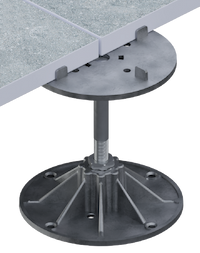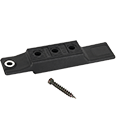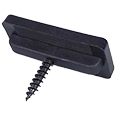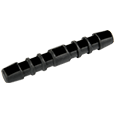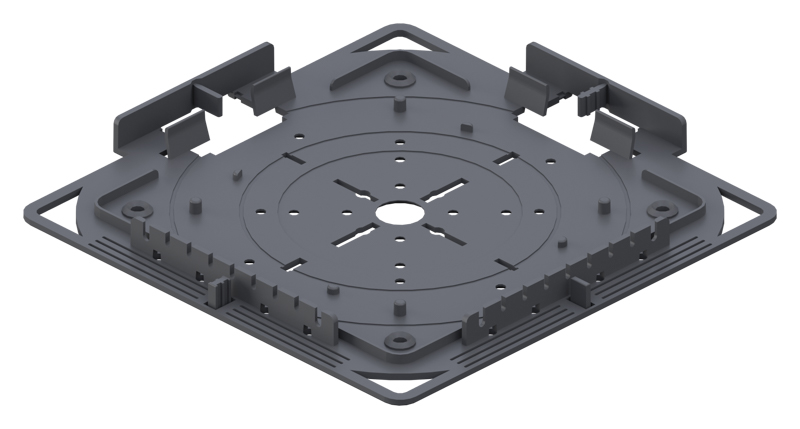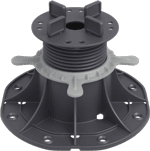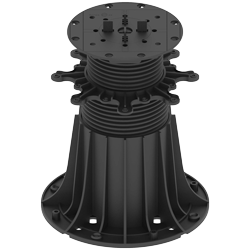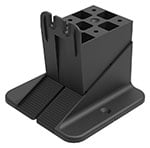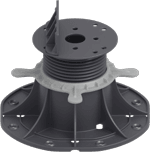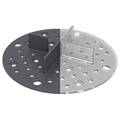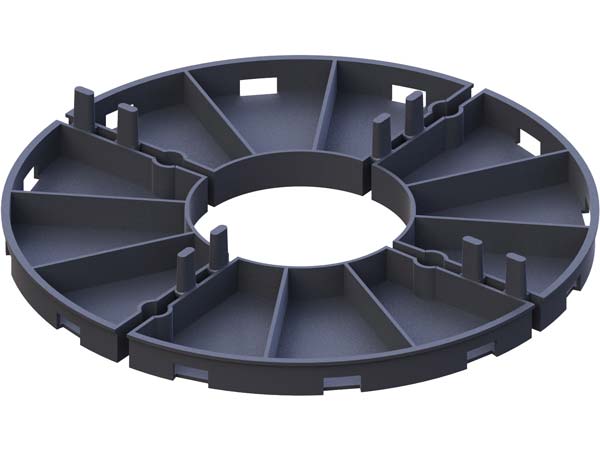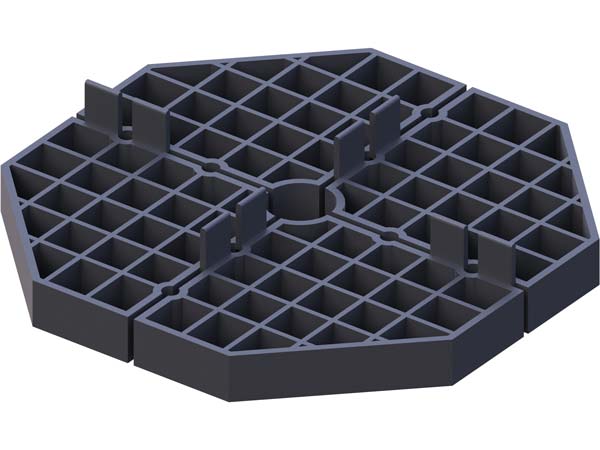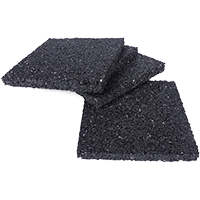The type of joists should comply with the recommendations of the terrace board manufacturer. Installation that is not in accordance with the manufacturer's instructions may result in the loss of warranty.
Terrace pedestals have no limitations regarding the material of the joists. The most important aspect is to ensure that the entire terrace structure is sufficiently durable, stable, and does not excessively flex during use.
The most commonly used materials for joists placed on pedestals are:
- Softwood joists made of regional softwood. This is a good material for installation on terrace pedestals, but it is important to use an appropriate joist size to prevent excessive flexing while walking. It is also worth noting that wood may tend to warp and undergo decay processes over the years.
- Hardwood joists made of exotic hardwood. This is an excellent material for installation on terrace pedestals, but it is important to use an appropriate joist size to prevent excessive flexing while walking. It is also worth noting that wood may tend to warp. Unlike softwood joists, hardwood joists are generally resistant to decay or undergo this process very slowly over many years.
- WPC (Wood Plastic Composite) joists. Using WPC joists on terrace pedestals carries certain risks. This material changes its flexibility depending on the temperature and can become too flexible on hot days, causing deflections. However, if you choose to install composite joists, it is important to select a high-quality product and ensure that the manufacturer maintains a warranty for installation on terrace pedestals.
- Aluminum joists. Aluminum joists are the best type of joists to choose for installing an elevated terrace on pedestals. These joists retain their dimensions under the decking, do not become pliable under high temperatures, and remain rigid.
Presented information is for general information and is a set of good practices. They cannot be the basis for claims or warranties against the manufacturer.




